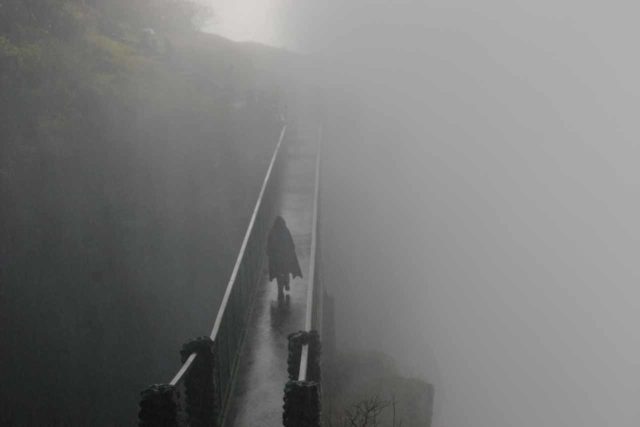In addition to our write-up on how to get to Victoria Falls concerning some of the logistics, we’ll also talk a little more about some other considerations to make when it comes to a visit.
Safety
Here are some more things to think about with regard to safety in Victoria Falls.
It’s no secret that there is some serious poverty in African countries. And both Zambia and Zimbabwe (the countries sharing Victoria Falls) are not exception.
As a result of big gaps between the rich and poor, it’s conceivable that mugging and/or petty theft can occur. This was especially the case during our visit given the political problems in Zimbabwe.
That’s not to say Zambians and Zimbabweans are criminals (in fact, they’re by and large nice, generous, and peaceful people), but as a traveler, it’s your job to be vigilant about keeping your money and your valuables out of sight (both as a courtesy and as a common sense measure; flaunting your bling bling is asking for it).
You can accomplish this by concealing your money in a body pouch beneath your clothes.
In addition to crime, there are other things to consider regarding safety.
One is water quality. If your stomach isn’t used to it, you’re going to get sick drinking or even brushing your teeth with their tap water. So load up on bottled water (as much as I’m not a fan of single use plastics). Also watch out for uncooked foods, vegetables, and fruits that might be washed in bad water. Same thing goes for ice.
Another thing to look out for is to stay on the walkways and away from the water. This is pretty self-explanatory, but getting swept away into the Zambezi River is a death sentence. So stay away from the edges and keep to the well-developed walkways. Do be careful if they’re wet (they usually are) as they can be slippery.
Currency
If you carry the US Dollar (and quite possibly the Great Britain Pound Sterling or Euro these days thanks to the falling US Dollar), it’s not necessary to exchange money as just about everyone (including street vendors) would gladly take US Dollars (at least that was our experience in 2008).
That said, you can also exchange money for Kwachas in Zambia. As for Zimbabwe, until the economy there is stabilized, I wouldn’t even consider exchanging for Zimbabwean Dollars.
That said, the advantage of using the local currency is that you’re lessening the likelihood of getting screwed on conversion rates if you’re unable to calculate and do the conversions on the fly.
However, over the years, we’ve run into situations where exchanging money into the local currency didn’t save money. In fact, it had made things worse due to the money exchange rates, the transaction fees, and the presence of locals who were savvy enough to impose two-tiered pricing based on what Westerners were willing to pay (or their insistance on foreign currency over local currency by giving you ad hoc dismal exchange rates).
At of late May 2008, the exchange rate was about 3200 Kwachas for 1 US Dollar. Even though Zambia was getting more expensive as Zimbabwe was falling apart (again, as of 2008, this could totally be different by the time you read this), the prices for things like food and accommodation (outside the real resorty Royal Livingstone or Zambezi Sun) were quite reasonable.
But remember, outside of tourist excursions, restaurants, and services, we were able to barter for curios, taxis, and other petty expenses.
Visitor Comments:
Got something you'd like to share or say to keep the conversation going? Feel free to leave a comment below...No users have replied to the content on this page

Only logged in users can post a comment Please login or sign up to comment